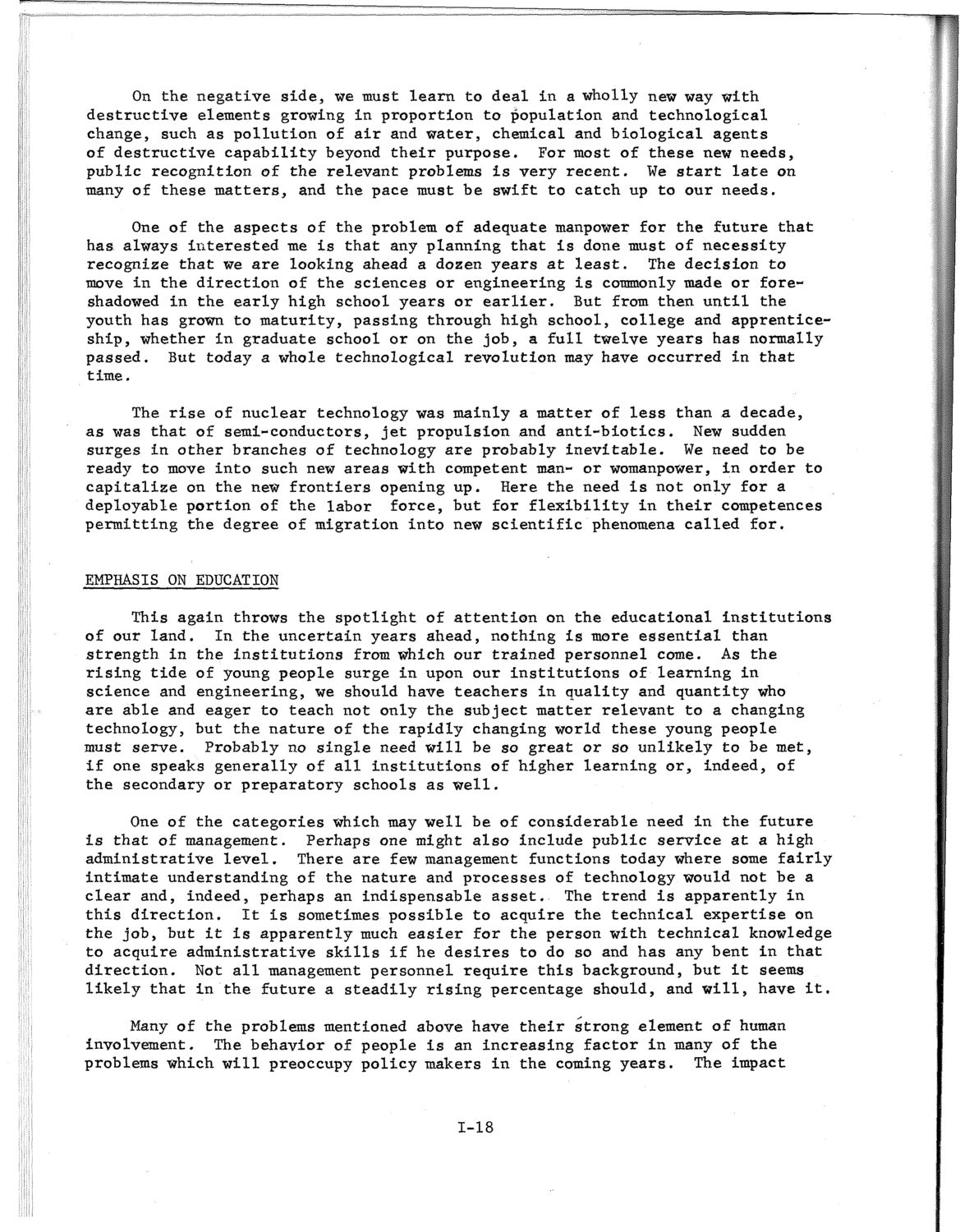| |
| |
Caption: SWE - Proceedings of the First International Conference of Women Engineers and Scientists
This is a reduced-resolution page image for fast online browsing.

EXTRACTED TEXT FROM PAGE:
On the negative side, we must learn to deal in a wholly new way with destructive elements growing in proportion to population and technological change, such as pollution of air and water, chemical and biological agents of destructive capability beyond their purpose. For most of these new needs, public recognition of the relevant problems is very recent. We start late on many of these matters, and the pace must be swift to catch up to our needs. One of the aspects of the problem of adequate manpower for the future that has always interested me is that any planning that is done must of necessity recognize that we are looking ahead a dozen years at least. The decision to move in the direction of the sciences or engineering is commonly made or foreshadowed in the early high school years or earlier. But from then until the youth has grown to maturity, passing through high school, college and apprenticeship, whether in graduate school or on the job, a full twelve years has normally passed. But today a whole technological revolution may have occurred in that time. The rise of nuclear technology was mainly a matter of less than a decade, as was that of semi-conductors, jet propulsion and anti-biotics. New sudden surges in other branches of technology are probably inevitable. We need to be ready to move into such new areas with competent man- or womanpower, in order to capitalize on the new frontiers opening up. Here the need is not only for a deployable portion of the labor force, but for flexibility in their competences permitting the degree of migration into new scientific phenomena called for. EMPHASIS ON EDUCATION This again throws the spotlight of attention on the educational institutions of our land. In the uncertain years ahead, nothing is more essential than strength in the institutions from which our trained personnel come. As the rising tide of young people surge in upon our institutions of learning in science and engineering, we should have teachers in quality and quantity who are able and eager to teach not only the subject matter relevant to a changing technology, but the nature of the rapidly changing world these young people must serve. Probably no single need will be so great or so unlikely to be met, if one speaks generally of all institutions of higher learning or, indeed, of the secondary or preparatory schools as well. One of the categories which may well be of considerable need in the future is that of management. Perhaps one might also include public service at a high administrative level. There are few management functions today where some fairly intimate understanding of the nature and processes of technology would not be a clear and, indeed, perhaps an indispensable asset. The trend is apparently in this direction. It is sometimes possible to acquire the technical expertise on the job, but it is apparently much easier for the person with technical knowledge to acquire administrative skills if he desires to do so and has any bent in that direction. Not all management personnel require this background, but it seems likely that in the future a steadily rising percentage should, and will, have it. Many of the problems mentioned above have their strong element of human involvement. The behavior of people is an increasing factor in many of the problems which will preoccupy policy makers in the coming years. The impact 1-18
| |